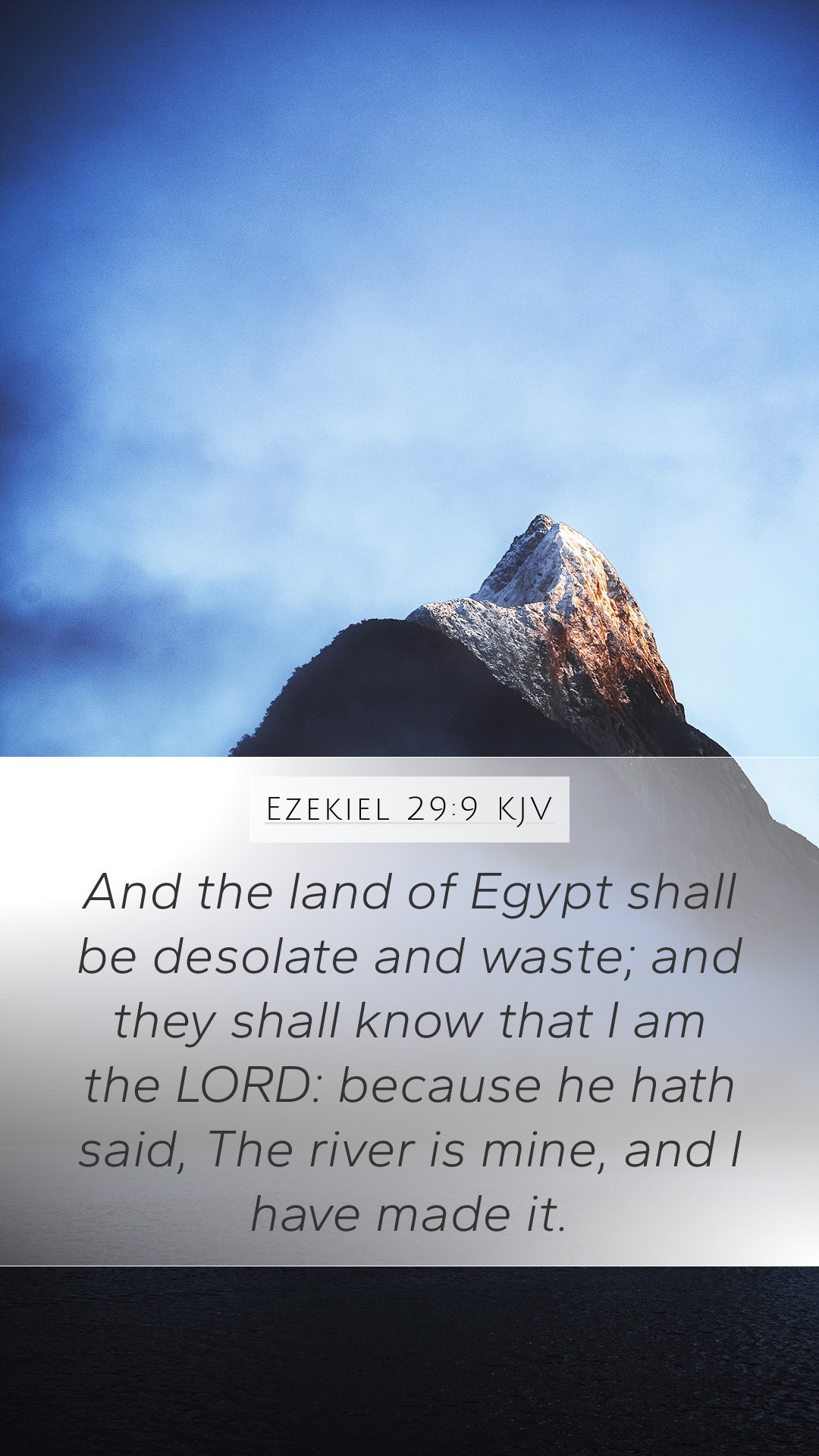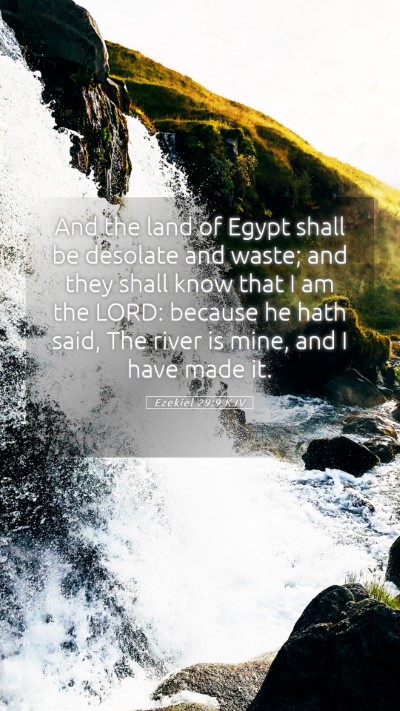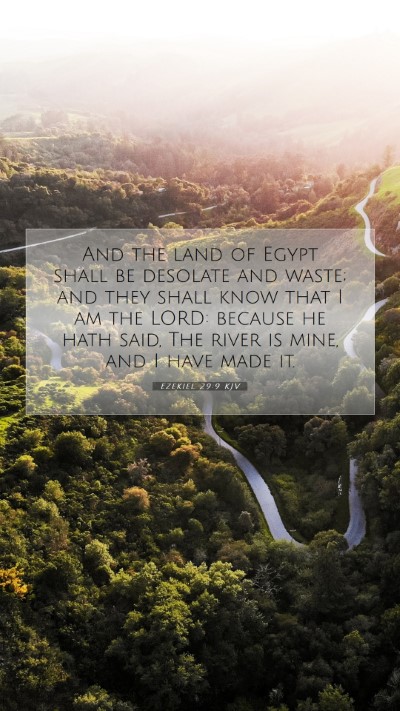Ezekiel 29:9 - Understanding the Meaning
Verse: Ezekiel 29:9 - "And the land of Egypt shall be desolate and waste; and they shall know that I am the Lord: because he hath said, The river is mine, and I have made it."
Summary of the verse meaning: This verse from Ezekiel addresses the desolation of Egypt and underscores the sovereignty of God over nations and nature, particularly referencing the Nile River, a source of life for Egypt. It emphasizes that the destruction will serve as a revelation of God's authority to the people.
Combined Insights from Public Domain Commentaries
This section merges insights from the commentaries of Matthew Henry, Albert Barnes, and Adam Clarke, providing a rich understanding of Ezekiel 29:9. The aim is to enhance Bible verse meanings, interpretations, and explanations for deeper comprehension.
Biblical Context
Ezekiel prophesied during a tumultuous time for Israel and surrounding nations. His messages often include judgments against nations that opposed or turned away from God. In this particular verse, God declares the devastation of Egypt, drawing attention to His control over the natural world, represented by the Nile.
Interpretations from Commentaries
- Matthew Henry: Henry highlights the notion of God's supreme authority. He states that the desolation of Egypt is not just a physical event but a spiritual lesson, showing that false security in natural resources, like the Nile, will not protect against God's judgment.
- Albert Barnes: Barnes notes that Egypt’s reliance on the Nile as a source of sustenance and livelihood will collapse. This serves to illustrate how God can remove the very means of survival to teach a critical lesson about the necessity of recognizing His power.
- Adam Clarke: Clarke emphasizes the prophetic nature of Ezekiel’s messages. He explains that the prophecy points to a future when Egypt will understand God's invisible hand in their fate, leading them to acknowledge Him as the one true Lord.
Theological Implications
The implications of Ezekiel 29:9 extend beyond its immediate context. The verse signifies God’s governance over historical events and natural phenomena, inspiring hope and caution among nations and believers alike. It serves as a reminder that human pride and reliance on material resources can lead to spiritual blindness and eventual downfall.
Application to Daily Life
This verse encourages individuals to examine their own dependences and where they place their faith. Just as Egypt was warned about the futility of trusting in the Nile, Christians today are urged to rely solely on God’s provision and guidance in their lives. The teachings from Ezekiel can be leveraged in Bible study groups to spark discussions on faith, reliance on God, and understanding divine sovereignty.
Related Scriptures
- Exodus 7:14-21: The plagues on the Nile demonstrate God's power over the natural elements.
- Jeremiah 46:14: Further prophecies regarding Egypt's fate confirm God's judgment against nations.
- Isaiah 19:5-10: An overview of God’s judgment on Egypt and its dependability on the Nile.
Conclusion
As we delve into Ezekiel 29:9, we uncover rich theological insights and practical applications that reveal the significance of God's sovereignty. Understanding scripture like this not only fulfills a scholarly pursuit but also deepens faith and trust in divine providence. In summary, Ezekiel 29:9 exposes the futility of misplaced trust and invites believers to recognize the omnipresence of God in their lives.
Keywords Utilized: Bible verse meanings, Bible verse interpretations, Bible verse understanding, Bible verse explanations, Bible verse commentary, scripture analysis, biblical exegesis, Bible study insights, understanding scripture.


